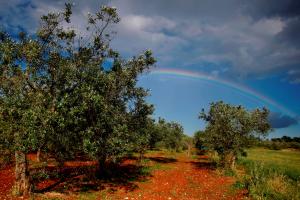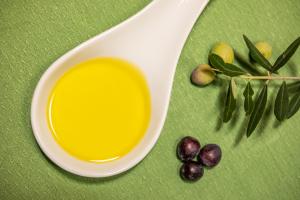Indigenous varieties
Oblica
Origin
Most widespread Croatian cultivar.
Agro biological properties
Medium-big plant with rounded foliage, and long, straight and sagging branches. Drupes are large (approx 5g), and grow separately from one another. At the beginning of maturation, the olives are light red turning darker as they ripen. Leaves are dark green, elliptical and tapered.
Fruit bearing
Irregular, but with a high oil yield. In deep soil and in the presence of good fertilizers, it bears fruits regularly and abundantly.
Fertilization
Partially by heterogamous fertilization (bearing two different types of flowers), with a high ratio of functional male flowers. Recommended fertilizers: Picholine, Leccino, Pendolino, Ascolana Tenera.
Resistance to adversities
Resistant to drought, wind and lower temperatures, making it suitable for cultivation in poor soil. Also resistant to trunk rot and olive fly (bactrocea oleae), but minimally resistant to peacock (or eye) spot (spilocea oleagina) and bacterial olive knot.
Quality of the oil
Good, for combined use. Distinguished by a mature olive fragrance, slight spice, bitterness and a clear sweet flavour.









